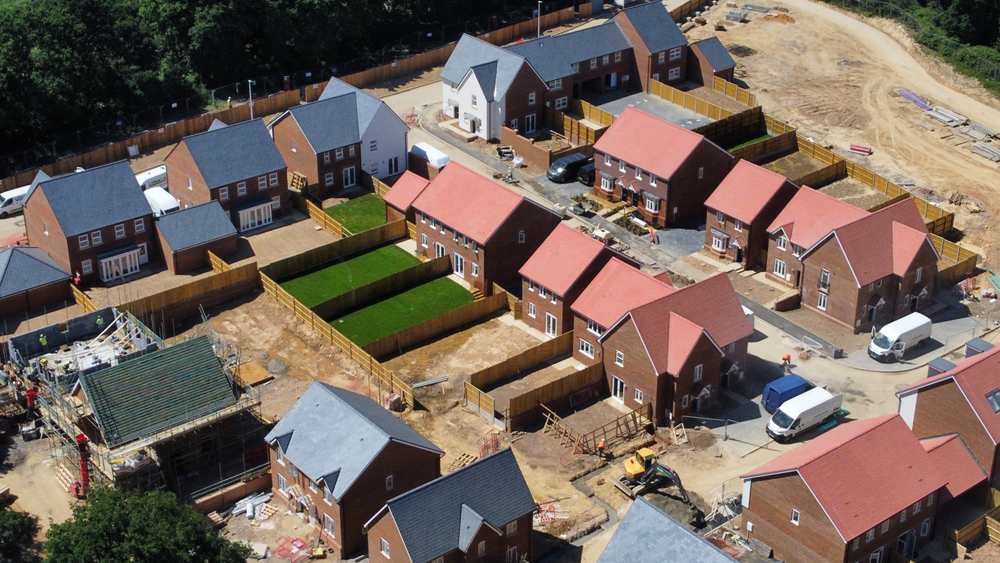
Understanding how VAT works with new-build properties is essential to avoid any surprise charges. This guide breaks down the key aspects of VAT on new builds, including the criteria for zero-rating and how to reclaim VAT on building materials.
Will I be charged VAT if I buy a new residential property?
You will not be charged VAT if you buy a new residential property, such as a newly built house or flat, as the sale of a new residential building is zero-rated. Zero-rating applies to residential buildings which are ‘designed as a dwelling’.
A building is ‘designed as a dwelling’ if it meets all the following conditions:
- It consists of self-contained living accommodation.
- There is no direct internal access from one dwelling to any other dwelling.
- The separate use of the dwelling is not prohibited by any covenant, statutory planning consent, or similar provision.
- The separate disposal of the dwelling is not prohibited by any covenant, statutory planning consent or similar provision.
- Statutory planning consent has been granted in respect of the dwelling, and its construction or conversion has been carried out in accordance with the consent.
Examples of zero-rated buildings 'designed as a dwelling'
Examples of buildings which are ‘designed as dwellings’ include:
- houses
- bungalows
- flats
- caravans (providing they exceed either 7 metres in length or 2.55 metres in width, and are manufactured to British safety standards)
Can I claim VAT when building my own house?
The purchase of a plot of land to build your own house is exempt from VAT.
However, materials purchased for the construction of a residential building are subject to VAT at the standard rate.
One way to avoid paying the VAT on materials is to employ a builder to carry out the construction and buy the materials on your behalf. The services provided by the builder are zero-rated. Materials the builder provides for use in the construction are also zero-rated if you are also using the builder's services.
Reclaiming VAT on goods and materials for construction
If the goods are not purchased by the contractor carrying out the work, HMRC does allow VAT on the purchase of goods and materials for the construction of a new dwelling to be reclaimed.
The VAT is reclaimed by submitting a claim to HMRC using the DIY housebuilder scheme. Claims can be made online or by completing a paper form.
You should note that HMRC will not repay VAT unless all the conditions for using the scheme are met.
Conditions for making a claim
If you claim a VAT refund, the home being built must:
- be separate and self-contained
- be for you or your family to live or holiday in
- not be for business purposes (you can use one room as a work-from-home office)
- VAT can only be reclaimed on building materials that form part of the building and cannot be removed without tools or without damaging the building
- You must have received planning permission and carried out the work as specified in the planning consent
- You must have a certificate of completion or similar evidence to show the building is complete
The claim must be submitted within the following time limits:
- For buildings completed before 5 December 2023, no more than 3 months after the building is completed
- For buildings completed on or after 5 December 2023, no more than six months after the building is completed
Do you need advice on VAT for new builds?
If you have any queries or concerns about VAT on new build housing, don't hesitate to contact our dedicated VAT team. Our experts are well-versed in the nuances of VAT regulations as they relate to residential property, whether you're considering purchasing a new home or engaging in DIY house building.
We're here to provide you with accurate information and guidance to ensure you make informed decisions regarding VAT and its impact on your housing endeavours.

Lynne Gill
My area of expertise is land and property transactions but I have extensive knowledge of both domestic and international VAT and I love complex VAT queries. I have an Honours degree in Business Studies and a VAT legal and technical qualification from the Institute of Indirect Taxation.
View my articlesTags: VAT, Business Taxes
